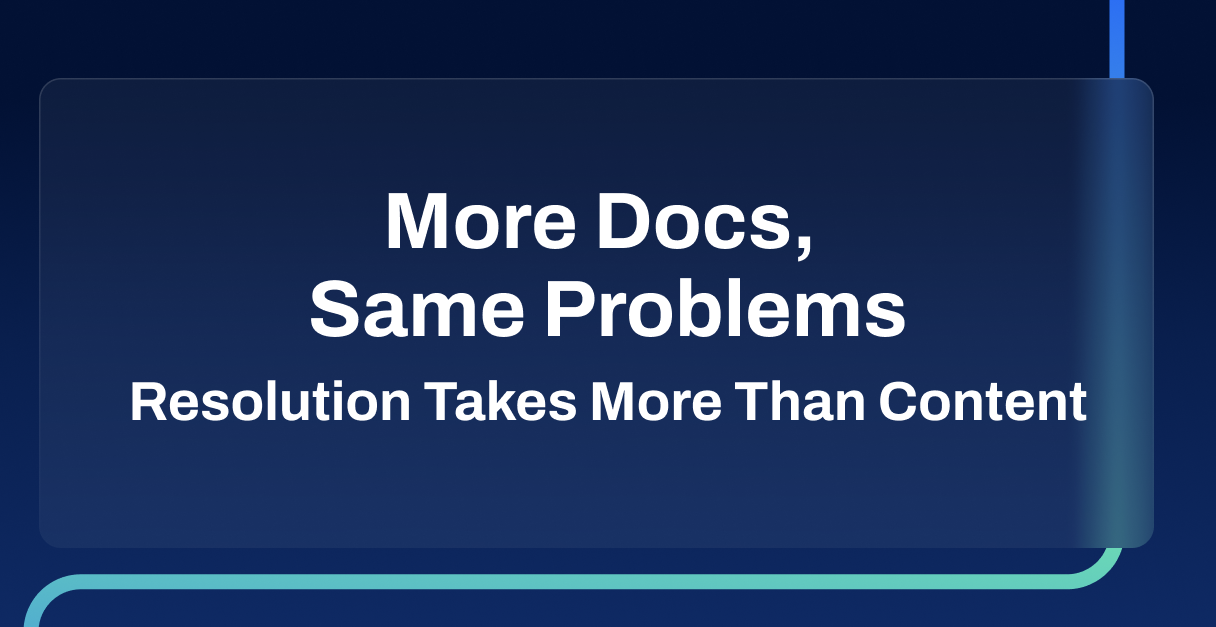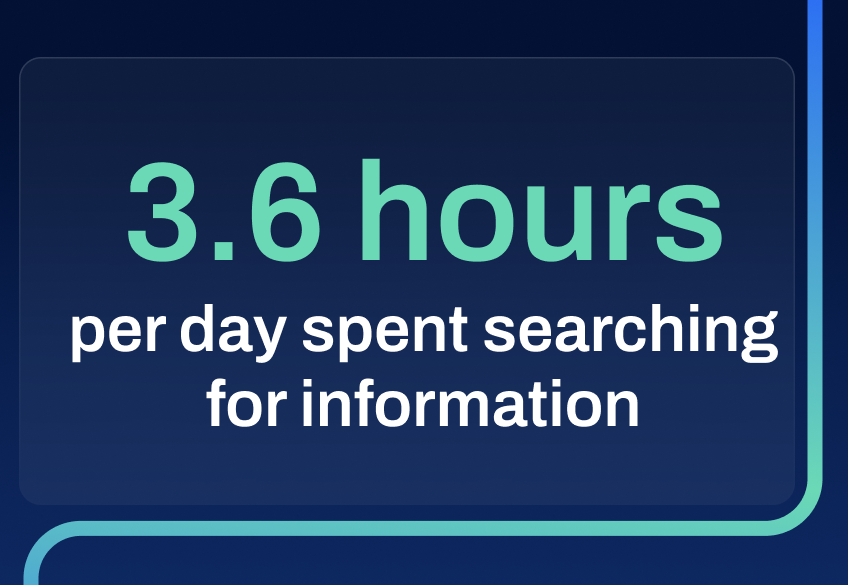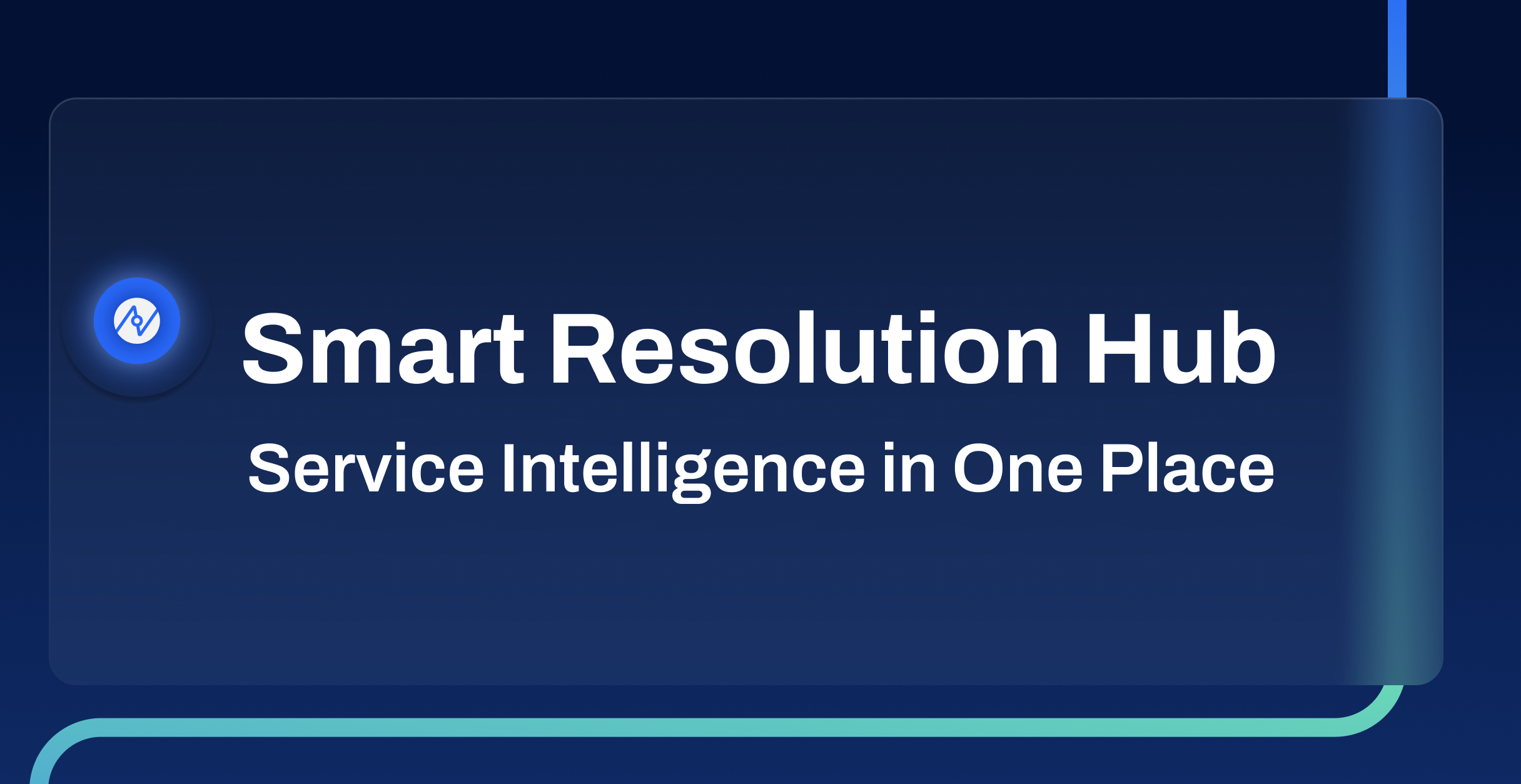You’re Not Lacking Articles. You’re Lacking Answers.

AI Will Help You Author Knowledge Articles Faster. That Won’t Solve Your Real Problem.
Service organizations are racing to adopt AI-powered content generation for their knowledge bases. The promise is compelling: create articles in minutes instead of hours, scale documentation efforts, and keep pace with product changes. But this focus on authoring speed addresses a symptom while missing the underlying disease.
The Real Crisis: Currency, Not Capacity
According to recent industry research, 62% of customer service agents report their knowledge materials are outdated. This isn’t just a production problem. Organizations already have extensive knowledge bases. The issue is that static articles become obsolete faster than teams can update them.
Gartner’s 2024 research reveals poor data quality costs organizations an average of $12.9 million annually. The U.S. economy loses $3.1 trillion per year to knowledge management failures. These costs stem from three structural problems that faster authoring cannot address:

1. Knowledge decay is inevitable in static systems
Products update continuously. Processes evolve. Field technicians discover new solutions daily. Meanwhile, knowledge base articles remain frozen in time until someone manually identifies, updates, and republishes them. By the time an article goes live, key sections may already be obsolete.
2. Update bottlenecks persist regardless of authoring speed
Even if AI generates draft content instantly, human review cycles remain. Subject matter experts must verify accuracy, managers must approve changes, and publishers must deploy updates. These governance steps often create weeks of delay, even when content is generated instantly. The 26% of contact center agents who report receiving different answers from different systems highlight this synchronization failure across siloed knowledge repositories.
3. Feedback mechanisms remain disconnected from remediation
Frontline agents frequently encounter incorrect or outdated information. However, traditional knowledge bases offer limited feedback channels. Thumbs-up/thumbs-down ratings surface frustration—but don’t fix the underlying issues. The gap between identifying problems and fixing them persists.

The Productivity Impact
Employees spend 3.6 hours per day searching for information, according to VentureBeat’s 2024 research. That’s 45% of an eight-hour workday spent searching for answers. McKinsey estimates that effective knowledge management could reduce search time by 35%, but “effective” means delivering answers—not just writing articles faster.
Customer experience metrics reflect these knowledge failures. Harvard Business Review found that 57% of customer service calls come from people who already visited the company website first. They didn’t call by preference; they called because self-service failed. Research shows 41% of customers report their questions aren’t answered through company websites, while 35% struggle to find reliable information quickly.
Resolution Pathways: A Different Architectural Approach
Neuron7.ai Resolution Pathways represents a fundamental shift from static knowledge bases to dynamic guidance systems. Instead of authoring new articles, the platform transforms existing documentation, manuals, videos, and case histories into interactive, step-by-step resolution paths.
Think of it like GPS for service resolution—guiding agents with real-time, step-by-step fixes. The system ingests content from any source, generates resolution pathways automatically with 90%+ accuracy, and updates guidance in real-time as products and processes change. When field technicians discover new solutions, those insights immediately become available system-wide without manual authoring, review, or publishing cycles.
Static Knowledge Can’t Support a $2 Trillion Market
Most importantly, feedback loops are embedded directly into the workflow. The system learns from every interaction, strengthening successful resolution paths and de-emphasizing ineffective ones. This continuous learning eliminates the traditional lag between identifying outdated knowledge and correcting it.
The knowledge management market is projected to grow from $773.6 billion in 2024 to $2.1 trillion by 2030, underscoring that current knowledge systems are no longer working. Yet Forrester’s Q4 2024 Wave report notes that “the past decade has seen little advancement in KM technologies.” The industry needs architectural innovation, not incremental improvements to existing static models.
Stop Publishing, Start Resolving
Explore The Ultimate Guide to AI for Complex Service and see how Resolution Pathways can turn outdated articles into real-time, interactive guidance that actually gets problems solved.




